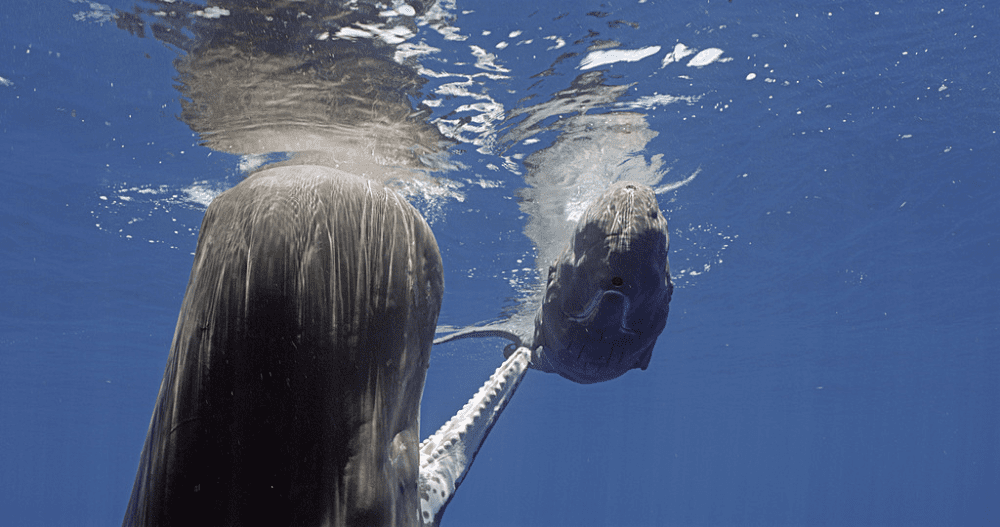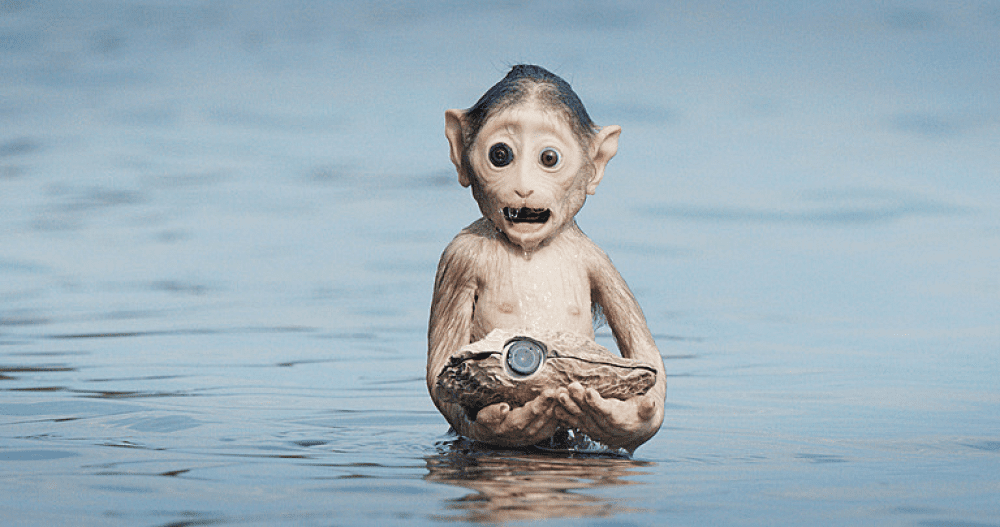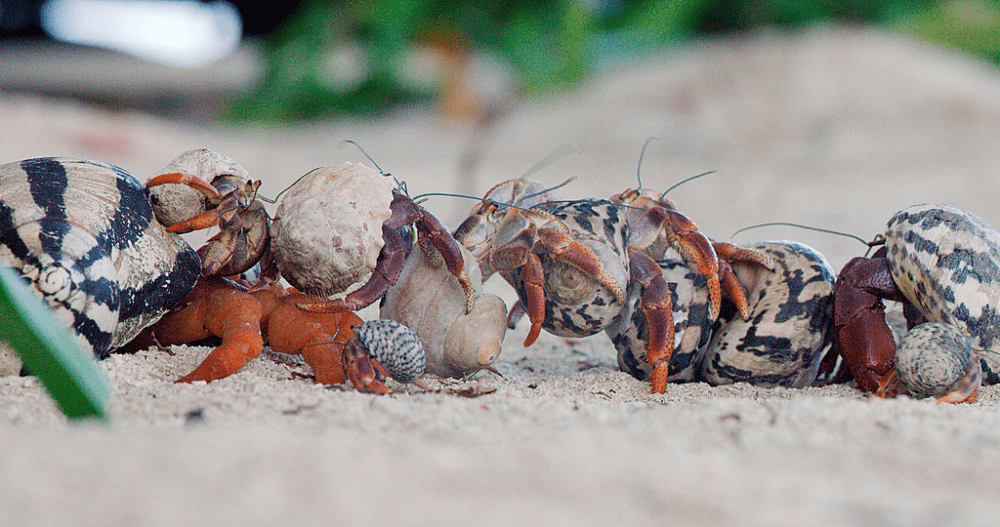Filming wildlife behaving naturally can be difficult because much of it is very observant. Chuck a camera operator amongst a group of dolphins and they’re going to know something’s up, but what if you could convince them that there’s nothing but nature all around them? Enter the BBC’s latest wildlife series, Spy In The Ocean.
The format of dressing up cameras as animatronic puppets has proven its worth in previous series, including one where a group of langurs mourned a dead Spy Creature after one of them knocked it over. Its stiff body made them think it was dead, and the camera was able to capture their response from the unique angle of being cradled by members of the troop.
Now, the four-part documentary series is back with a more ambitious show than ever before as Spy Creatures tackle the ocean. In episode one, airing on June 4, they get up close and very personal with the owners of the largest brains on the planet: sperm whales.

A real sperm whale (left) communicating with the Spy Whale calf off Mauritius. Image credit: BBC/John Downer Productions/René Heuzey
This particular Spy Whale is the same size as a newborn whale calf at 3 meters (9.8 feet) and weighs around a ton. It can swim and dive like the real thing, and even has a wardrobe of skin suits so it can change species depending on what the filmmakers are after.
Down on the seabed, another highly intelligent animal with an alien-like brain comes up against Spy Octopus. The unlikely pair end up interacting as the real octopus steals a coconut shell from Spy Octopus when some predators get too close for comfort.
The series doesn’t only cover ocean dwellers, however, as Thailand’s famous swimming monkeys make an appearance as Spy Macaque is deployed, complete with Spy Oyster. The swimming Spy Creature is able to capture incredible shots of these macaques’ unique fishing skills, including swiping the Spy Oyster and taking it up into the treetops.

Evidently, the swimming monkeys of Thailand have no issue robbing an infant. Image credit: BBC/John Downer Productions/Steve Downer
Viewers can also look forward to Spy Puffer helping a male Japanese puffer fish to craft the magnificent underwater sand sculptures that puzzled scientists for decades. Adding to the roster of surprisingly semi-aquatic mammals, Spy Pig crashed a colony of swimming wild pigs in the Caribbean to find out how they search for food.
You’ll also get to ride on board with a hermit crab when the shell of one Spy Creature gets highjacked during the famous house-swap conga line of these nomadic crustaceans.

That’s Spy Hermit Crab on the far left. Image credit: BBC/John Downer Productions/Huw Williams
And all that’s just in episode one! The rest of the series will roll out on BBC One revealing new insights and perspectives on problem-solving fish, social gatherings among whales, and much more.
Spy in the Ocean starts on BBC One on June 4 with episodes dropping weekly or catch it later on iPlayer.
Source Link: A Spy Creature Gets Its Shell Home Stolen In BBC’s New "Spy In The Ocean"